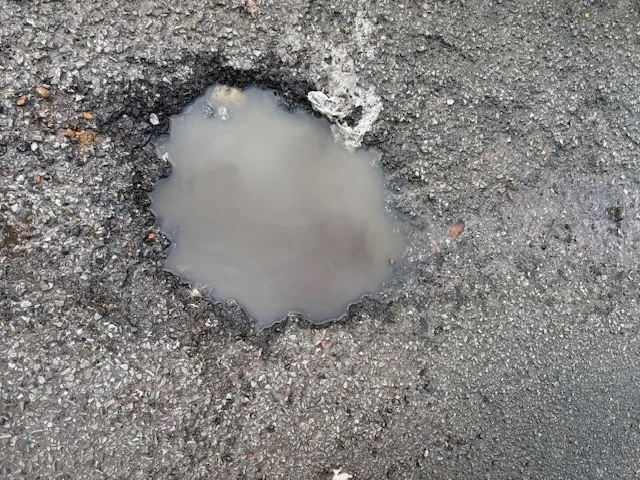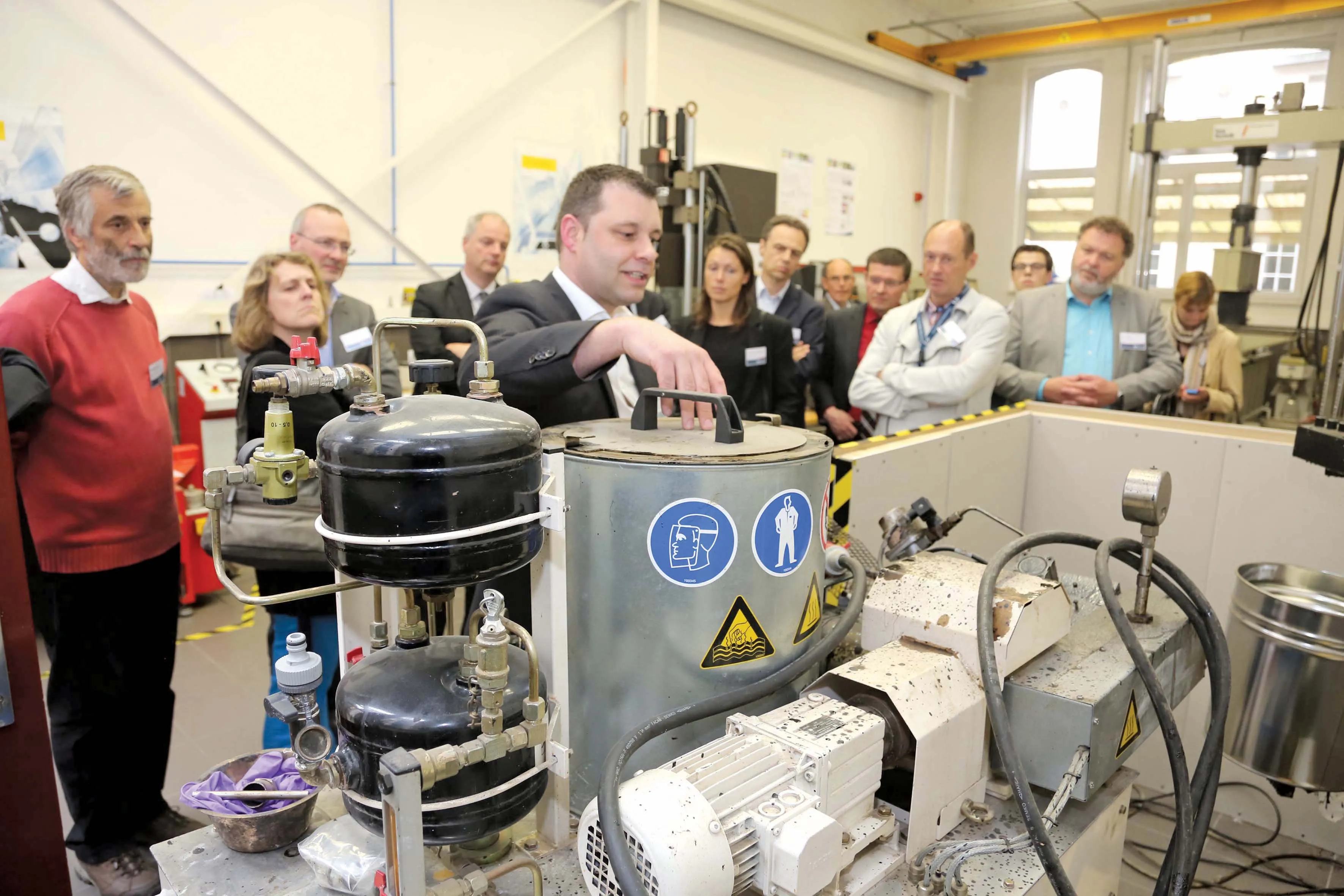
A new technology using biomass waste could allow road surfaces to become self-healing, addressing the prevalent problems of potholes. Designed using AI, this technology could provide a road surface life of up to 30 years. Developed jointly by scientists from King’s College London and Swansea University, in collaboration with scientists in Chile. In the UK, this could tackle the pothole problem, estimated to cost £143 million/year. If proven successful in trials, this technology could make a substantial cut in maintenance needs and costs.
During the research, a type of AI known as machine learning was used to study organic molecules in complex fluids like bitumen. The team developed a new data-driven model to accelerate atomistic simulations, advancing research into bitumen oxidation and crack formation. The team is also collaborating with Google Cloud to simulate the behaviour of the bitumen on a computer.
To make the asphalt self-repairing, the team incorporated tiny porous spores made from plants. The spores are filled with recycled oils, which are released when the asphalt begins to fracture, reversing cracking. In laboratory experiments, this advanced asphalt material was shown to repair a microcrack on its surface in less than an hour.
Dr Francisco Martin-Martinez, an expert in Computational Chemistry at King’s College London, said: “In our research, we want to mimic the healing properties observed in nature. For example, when a tree or animal is cut, their wounds naturally heal over time, using their own biology. Creating asphalt that can heal itself will increase the durability of roads and reduce the need for people to fill in potholes.
“We are also using sustainable materials in our new asphalt, including biomass waste. This will reduce our dependence on petroleum and natural resources. Biomass waste is available locally and everywhere, and it is cheap. Producing infrastructure materials from local resources like waste reduces the dependence on petroleum availability, which helps those areas of the world that have limited access to petroleum-based asphalt.”
Dr Jose Norambuena-Contreras, an expert in Self-Healing Asphalt at Swansea University, said: "In our interdisciplinary study, we are bringing together experts in civil engineering, chemistry, and computer science to investigate the self-healing properties of a modified bitumen. By combining this knowledge with the state-of-the-art AI tools of Google Cloud, we aimed to enhance our understanding of bitumen’s healing capabilities through a bottom-up molecular design approach.
“We are proud to be advancing the development of self-healing asphalt using biomass waste and artificial intelligence. This approach positions our research at the forefront of sustainable infrastructure innovation, contributing to the development of net-zero roads with enhanced durability.
"Iain Burgess, UKI Public Sector Leader at Google Cloud, added: “We first worked with Dr Francisco Martin-Martinez when he joined the Google Cloud Research Innovators Programme in 2022, providing him access to Google experts, technical resources and training to support his research. Now, it is inspiring to see how teams at Swansea and King’s College London are unlocking the power of cloud-based and AI tools, including Gemini and Vertex AI, to drive more efficient processes and discover chemical properties.”
While still in development and yet to be published, this innovation has enormous potential to improve infrastructure and advance sustainability around the world. A substantial portion of carbon emissions from roads is linked to asphalt production. As the highway sector increasingly prioritises carbon reduction to support the UK Government's goal of achieving net-zero emissions by 2050, advancing innovative bituminous materials for asphalt roads has become a key research priority.









